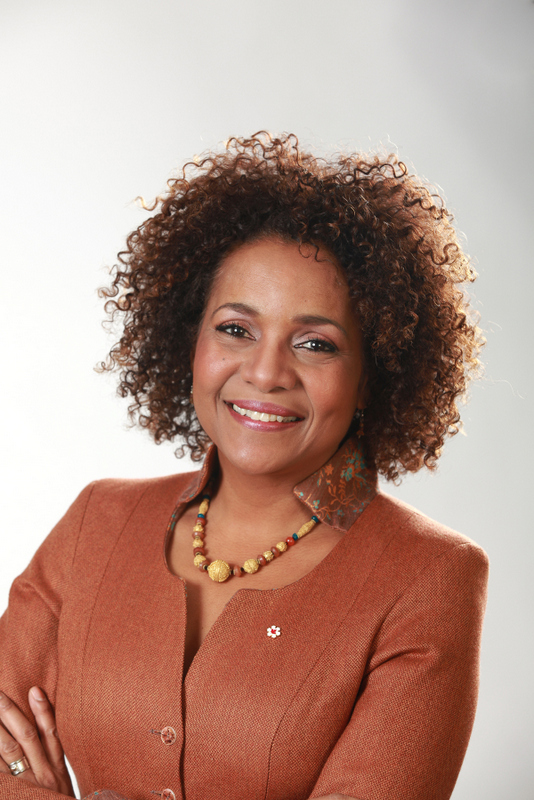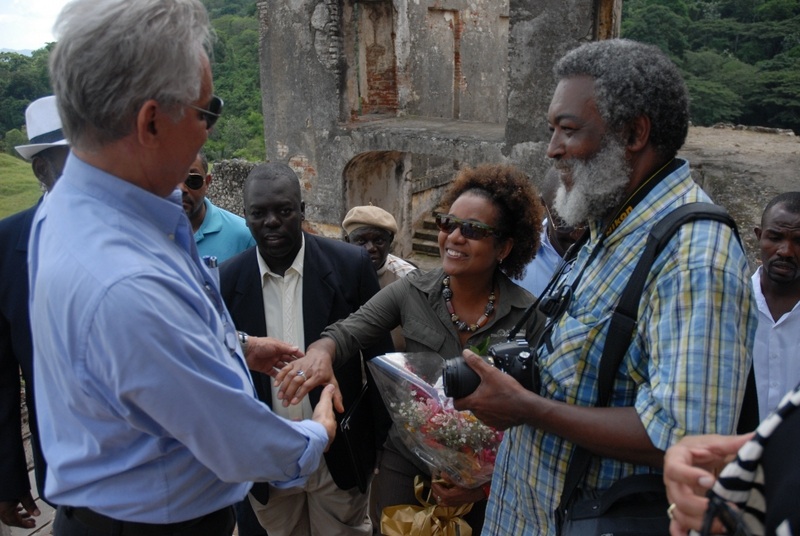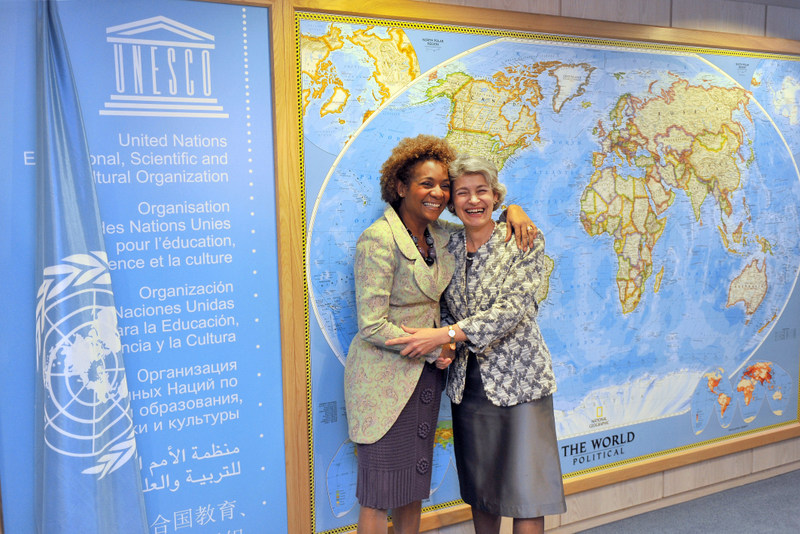Were you to hear the words "Need, Earthquake, Suffering, Charity" in conjunction with "News" and "Haiti," would that resonate? What about "Sovereign Nation, Civic-Minded, Engaged or Capable" -- still familiar?
Indeed.
Post-earthquake Haiti has been the site of much international concern and attention. Aid continues to be extended to Haiti, with some non-profit organisations even broadening their general outreach missions to include Haiti's current plight. Non-profits and NGOs have been necessarily vocal in relaying the state of things to us, the concerned public. Even today with rogue forces pushing for a revival of Haiti's military and a new president recovering from a major health scare, the nation's recovery feels perpetually challenged. These organizations are to be commended for standing in support and solidarity with the nation of Haiti and its plans to rebuild.
"Actually," Michaelle Jean, UNESCO's special envoy to Haiti explains, "There are over 10,000 NGOs in Haiti and less than 1 percent of aid goes to Haitian government initiatives and less than 1 percent of monetary aid goes to Haitian NGOS."
Whoa. Wait. What?!
How is 'need' and 'sustained recovery' being assessed if not through continuous dialogue with the injured group, in this case Haitian people and its governance? How can a plan for a recovered Haiti be charted if not premised upon a Haitian vision of success? I was confused.
Prior to her appointment with UNESCO in 2010, Mme Jean was appointed to public service in her adopted country Canada. President Obama's first international visit had him greeted by Canada's then de facto head of state, Her Excellency, the governor general Michaelle Jean (2005-2010). Mme Jean now serves as chancellor of the University of Ottawa as well as special envoy to Haiti, maintaining her commitment to remain in service of both nations. Mme Jean's family fled Haiti to escape political persecution under the Francois 'Papa Doc' Duvalier regime (1957-1971) when she was 12.
Mme Jean's statement threw me. I was among those who relied exclusively upon news and NGO reports for information on Haiti's progress, but were we receiving the full story? Here was an opportunity to ask a Haitian, involved in the daily struggle to ameliorate Haiti's state, what was happening. I had but one question. "Without filters," I asked, "What should we know and/or understand about Haiti, about Haitians at this time?"
To which Mme Jean responded:
1."The international community must re-analyze the logic of assistance. Intentions are good, but what Haitians want is to be assisted to a plan of self-sufficiency, not to further assistance. Charity, even from the heart, does not build."
2."NGOs should consider what Haitians desire, at a national level. The approach has always been to deal with Haiti [primarily] in times of crisis. The effects are not always helpful. For example, over years the USAID has sent tons of rice, but rice is one of Haiti's main industries [and the influx of the grain] has killed local production."
3."We must stop saying Haitians are 'resilient' and begin to say Haitians are 'capable.' Haiti wishes to partner with other nations in industry. [As it stands] Haiti has become a laboratory for charitable experiments, the positive effects of which are not longstanding.
4."Haiti has a [documented] plan for its growth and goals. Particularly in the area of education. We know it is good to speak of change but we understand that we must create a direction towards success. The Dominican Republic has delivered on its promise and built a university in Haiti. It was inaugurated on January 12, 2012. The new government has also outlined their plan to increase literacy rates."
5."We must stop saying 'nothing changes.' Haitian people work to make their lives and that of their nation stronger everyday."
6."Help is good, but it must be done in partnership with the people, not for them."
Mme Jean's assertions stand in decided contrast to a lot of popular news about the Caribbean nation. It is conceivable that foreign spokespeople feel it necessary to highlight the worst in Haiti's plight in order to maintain public interest and generosity, in which case what harm is really being done? After all, needs are being ostensibly met.
Further, how much respect can one hope to confer upon a nation that has, "high taxes... a huge national debt... over-the-top red tape, double-digit unemployment, and low incentives for entrepreneurs."*
Quite a bit actually, since the latter stats belonged to France in 2003, a decidedly developed, industrialized nation and Haiti's former colonial ruler. France is advanced, but still faces very real challenges, as do all nations. French people however are not exclusively defined by those challenges and maintain agency in their nation's course. It seems only reasonable, at least to this author, that Haiti's people should be extended that same courtesy from time to time.

Michaelle Jean, Copyright Robert Lacombe, University of Ottawa

Michaelle visits Citadel in Milot, Copyright Frank Rimpel Jr.

Jean et Bokova, Copyright UNESCO / Michel Ravassard
*Jean-Benoit Nadeau and Julie Barlow. Sixty Million Frenchmen Can't Be Wrong: Sourcebooks Inc., 2003. Print
